Humane Society (HSUS) Issues Public Statement on Project Chimps; Advocates Respond
The News
On July 2nd, Kitty Block, the CEO of the Humane Society of the United States (HSUS), sent the following statement to people who participated in a letter-writing campaign calling on the organization to improve animal welfare at Project Chimps, HSUS’s sanctuary in Georgia that is home to 77 chimpanzees.
HSUS STATEMENT
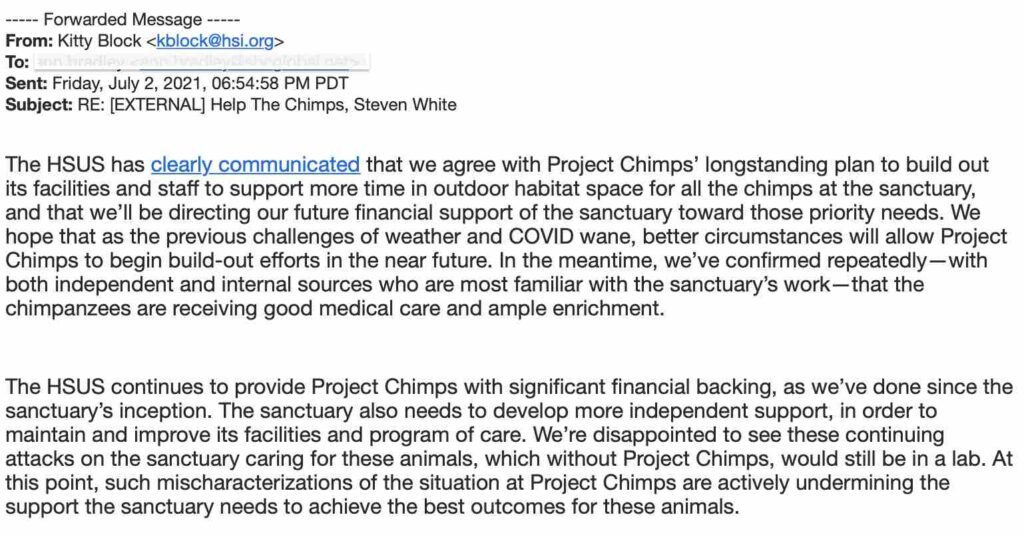
Letter sent by HSUS CEO Kitty Block to advocates who contacted her regarding inhumane treatment at its chimpanzee sanctuary in Georgia, Project Chimps
OUR RESPONSE
The organizations and activists advocating on behalf of these chimps are pleased that HSUS is finally acknowledging the need to create new yards so that the chimps have access to the outdoors every day. However, we are disappointed that HSUS is denying other serious deficiencies and using PR spin and misinformation to give the impression that conditions at the sanctuary are humane.
We realize that powerful organizations can be intransigent, but, given HSUS’s mission to help animals, we are baffled by the poor welfare conditions; by HSUS’s refusal to acknowledge and fix them; and by its unwillingness to apologize to the whistleblowers whom they sued after they exposed these conditions.
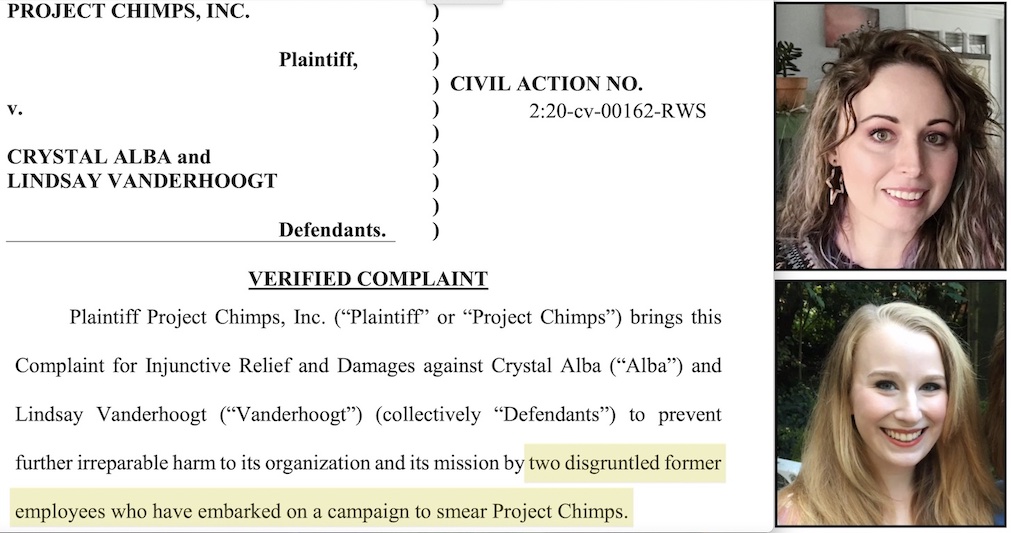
HSUS sanctuary Project Chimps filed – and ultimately dropped – a lawsuit against former employees Crystal Alba and Lindsay Vanderhooght after they came forward publicly with evidence of animal cruelty
HSUS can continue to use its PR machine to discredit the advocates and portray us as uninformed. The truth, however, is on our side. We will continue to be a voice for the 77 chimps until HSUS transforms Project Chimps into a true sanctuary that meets the standards set by the Global Federation of Animal Sanctuaries (GFAS).
Outdoor Access
HSUS states that the chimps should have “more time in outdoor habitat space.” Until now, HSUS has dismissed our concerns about the long stretches of confinement by falsely claiming that the chimps have access to the outdoors every day on porches. The porches, however, are concrete rooms with metal bars through which chimps can merely see the outdoors. HSUS further deceives the public and its donors by posting photos that give the impression that the chimpanzees spend their days in a lush outdoor habitat.
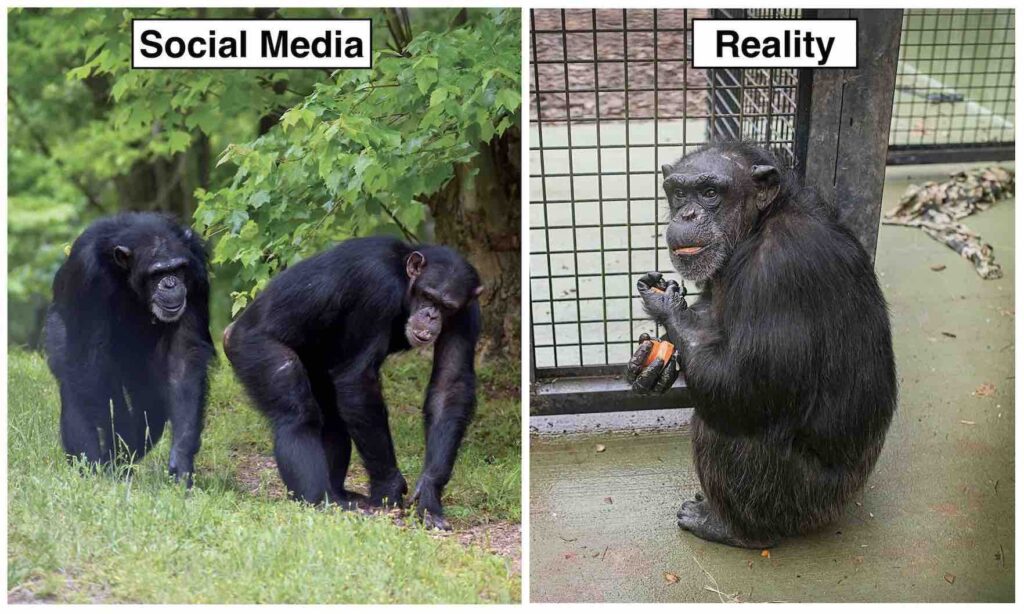
The chimpanzees at HSUS sanctuary Project Chimps have access to the outdoors just once every three days for a few hours, but the facility’s social media pages would lead the public to believe that they spend seven days a week in the habitat.
In its statement, HSUS attributes the delays in creating new outdoor habitats to COVID and bad weather, but the chimpanzees have been living without sufficient outdoor space for six years. Furthermore, if Project Chimps was able to build hiking trails for tourists during the pandemic, then why couldn’t it create yards for the chimps? Sanctuaries are not zoos; they are supposed to prioritize the needs of the animals, not amenities for tourists.
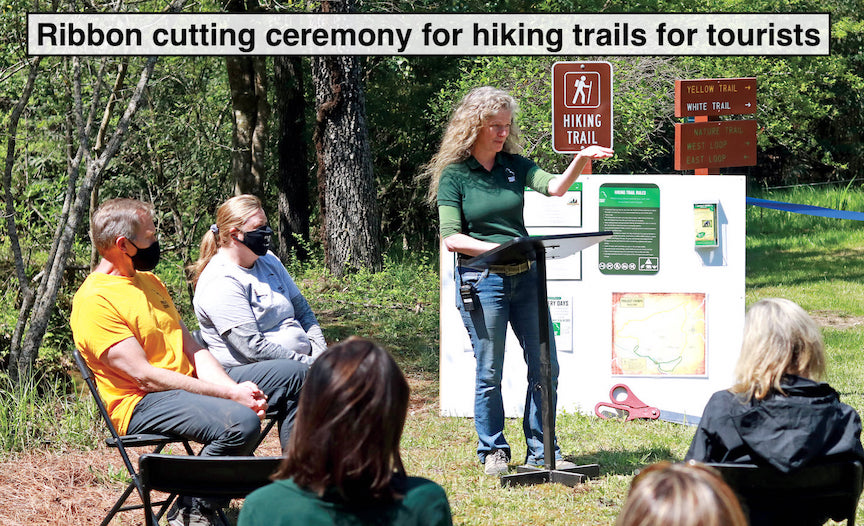
HSUS claims that COVID and poor weather prevented Project Chimps from creating yards for the chimps, yet these conditions didn’t stop the sanctuary from creating hiking trails for tourists.
If advocates hadn’t exposed the fact that Project Chimps was warehousing these chimps instead of providing them with a true sanctuary, then HSUS would not be acknowledging the need to “begin build-out efforts in the near future.” It would still be suing the whistleblowers who publicly exposed this gross deficiency in the first place.
Veterinary Care
HSUS states that the chimpanzees are “receiving good medical care” according to “independent sources.” That is not true. In a highly anticipated assessment of Project Chimps conducted in late 2020, Dr. Steve Ross gave Project Chimps a D grade on its welfare management programs, which assesses veterinary services, enrichment, training, safety, staffing and diet. In his report, Dr. Ross emphasized, “There is relatively little veterinary experience.” Dr. Ross published his critical assessment eight months ago (11/2020), and, still, HSUS has not hired a veterinarian with chimpanzee experience.
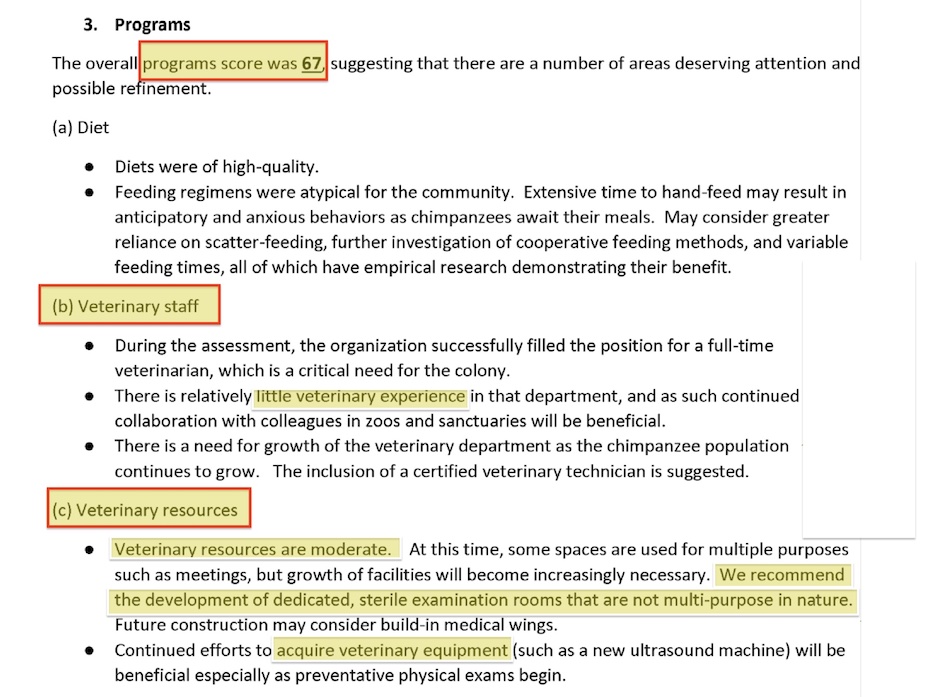
In a 2020 assessment of HSUS sanctuary Project Chimps, primatologist Dr. Steve Ross gave Project Chimps a D on its welfare management programs, which include veterinary care.
At Project Chimps, medical care is administered by a retired small animal veterinarian who has no prior chimpanzee experience and who spends just a few hours, one day a week at the sanctuary. Since May 2020, two chimpanzees needlessly died after he ignored the pleas of chimp caregivers to address their serious and recurring symptoms.
“Chimps would still be in a lab”
HSUS states that the chimps “would still be in a lab without Project Chimps.” That is misleading. More than a hundred chimps are STILL in a lab because of HSUS’s failure to create a true sanctuary environment.
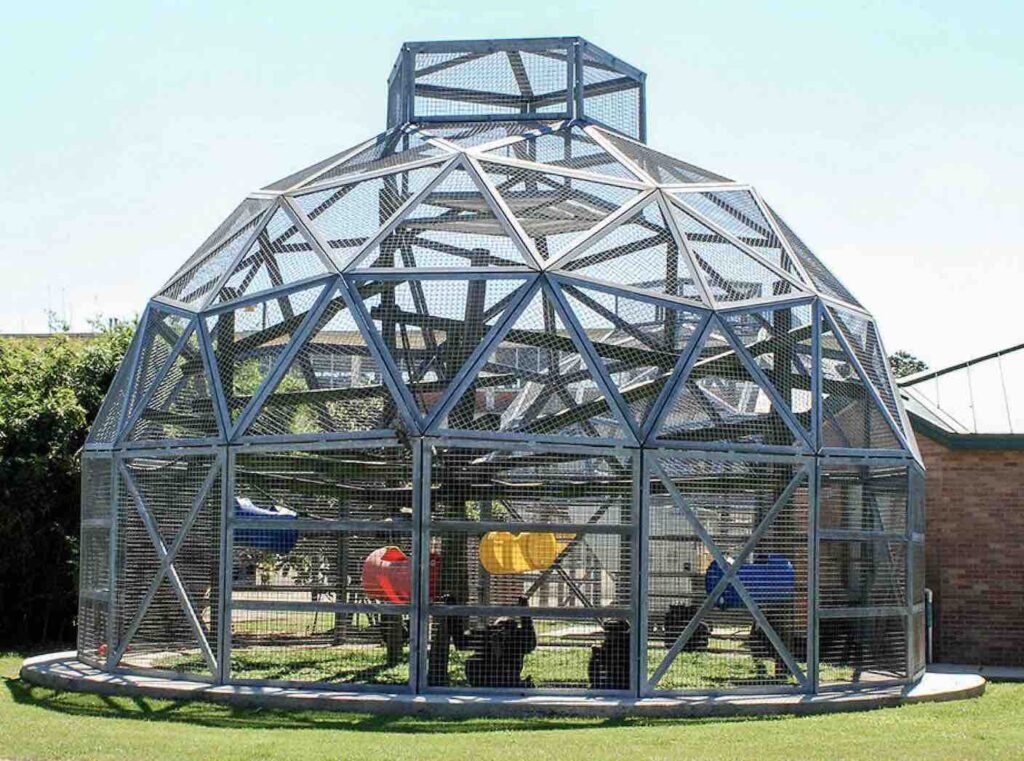
A contract between New Iberia Research Center (NIRC) and HSUS stipulates that all of the chimps will be sent to Project Chimps, but NIRC has stopped sending chimps due to welfare concerns at the sanctuary.
The contract between HSUS and the lab (New Iberia Research Center – NIRC) stipulates that NIRC will send all of its chimpanzees to Project Chimps, but NIRC has stopped sending chimps because HSUS is not fulfilling its obligation to provide them with a true sanctuary. If HSUS hired a veterinarian and care staff with chimpanzee experience and modified the yards to increase time outdoors (while creating new yards), then NIRC would be able to send the remaining chimpanzees to Project Chimps.
“Attacks on the Sanctuary”
HSUS states that “attacks on the sanctuary” are “actively undermining the support the sanctuary needs to achieve the best outcomes for these animals.” That is false. It is only because of these “attacks” (aka advocacy) that HSUS is finally acknowledging at least one of the sanctuary’s serious deficiencies – a shortage of outdoor space for the chimps.
The whistleblowers, activists and national advocacy groups (Nonhuman Rights Project and PETA) that are advocating for these chimpanzees never intended to speak out publicly, but HSUS’s arrogant dismissal of the concerns that we raised in private left us – and continues to leave us – with no choice. Normally, the Global Federation of Animals Sanctuaries (GFAS), not activists, would ensure that accredited sanctuaries are treating their animals humanely. However, because GFAS was created by and is, in part, funded, by HSUS, it is not enforcing its own standards at Project Chimps. The chimpanzees are victims of this conflict of interest.
Filed under: Experimentation
Tagged with: chimpanzees, Humane Society of the United States, Project Chimps



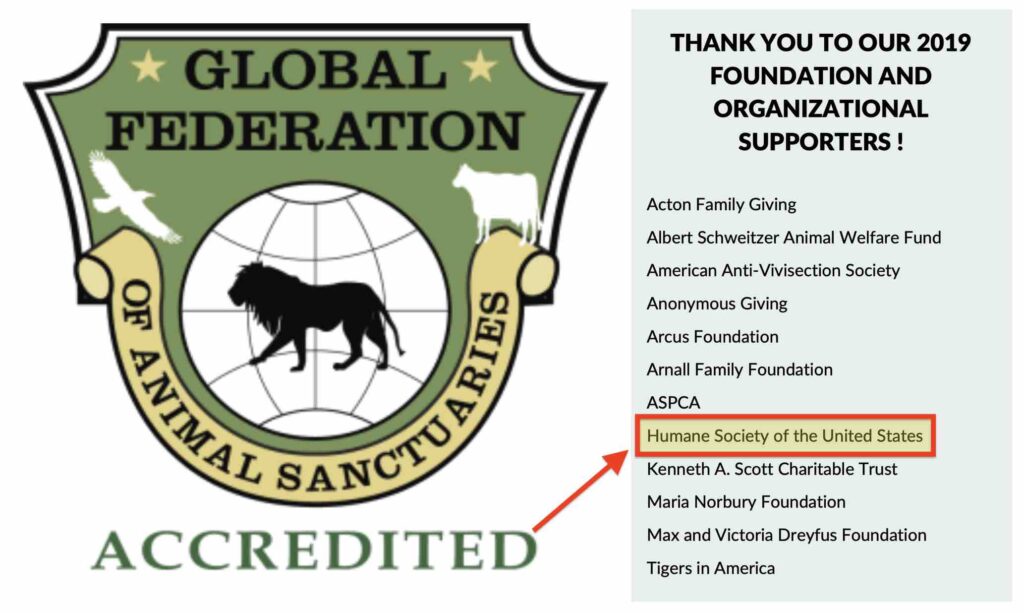
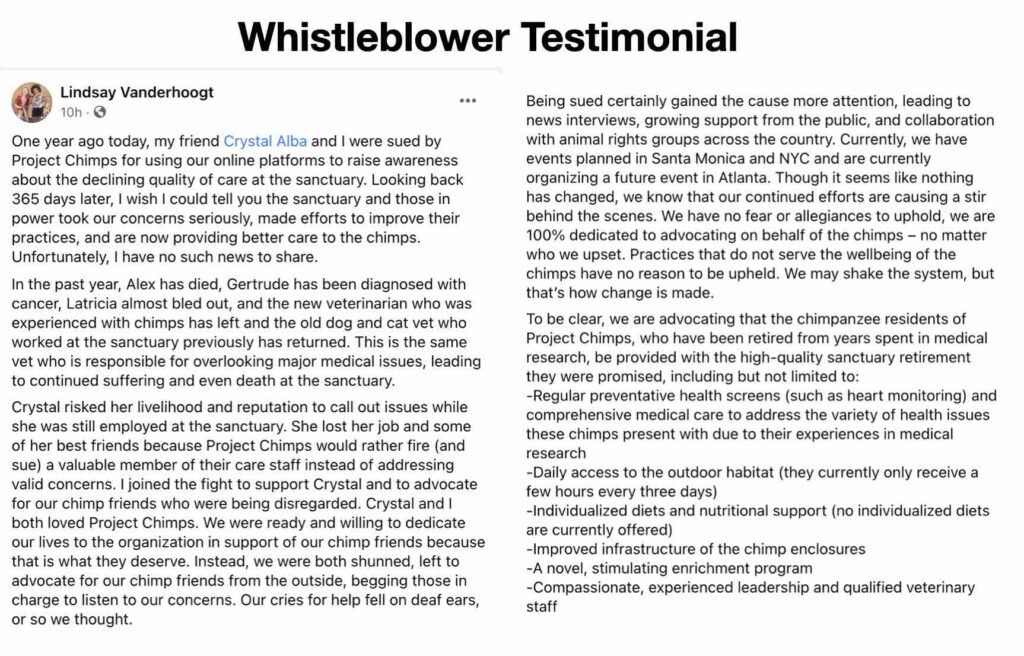
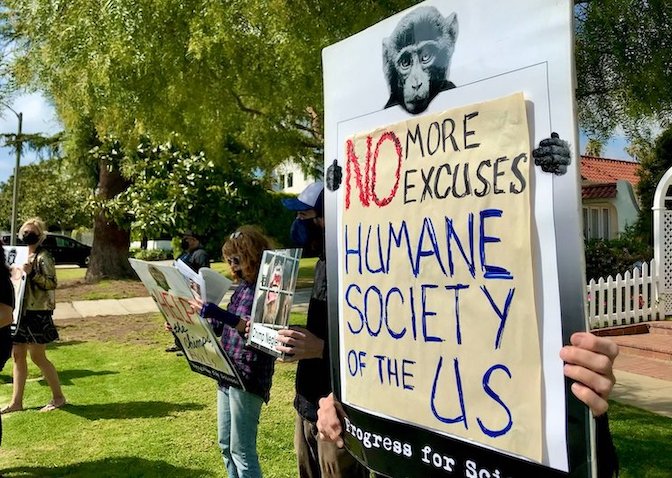
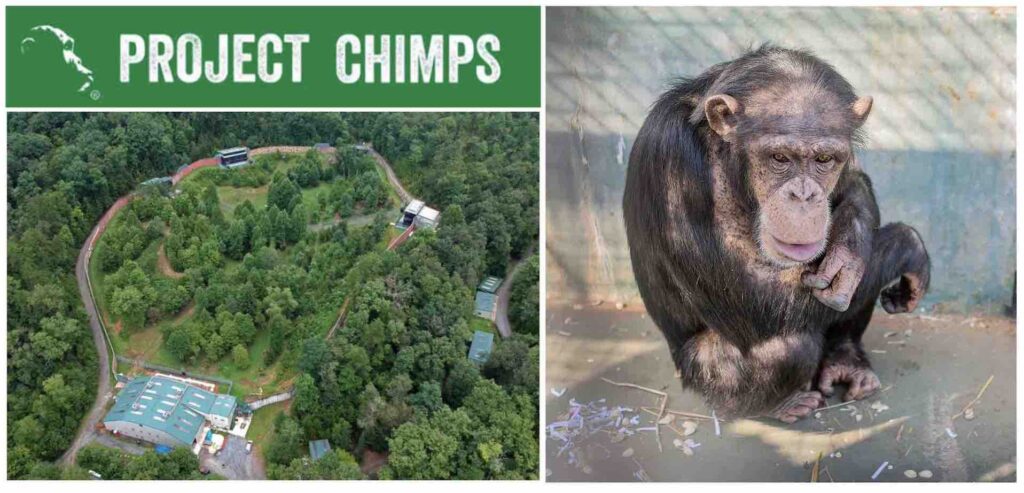
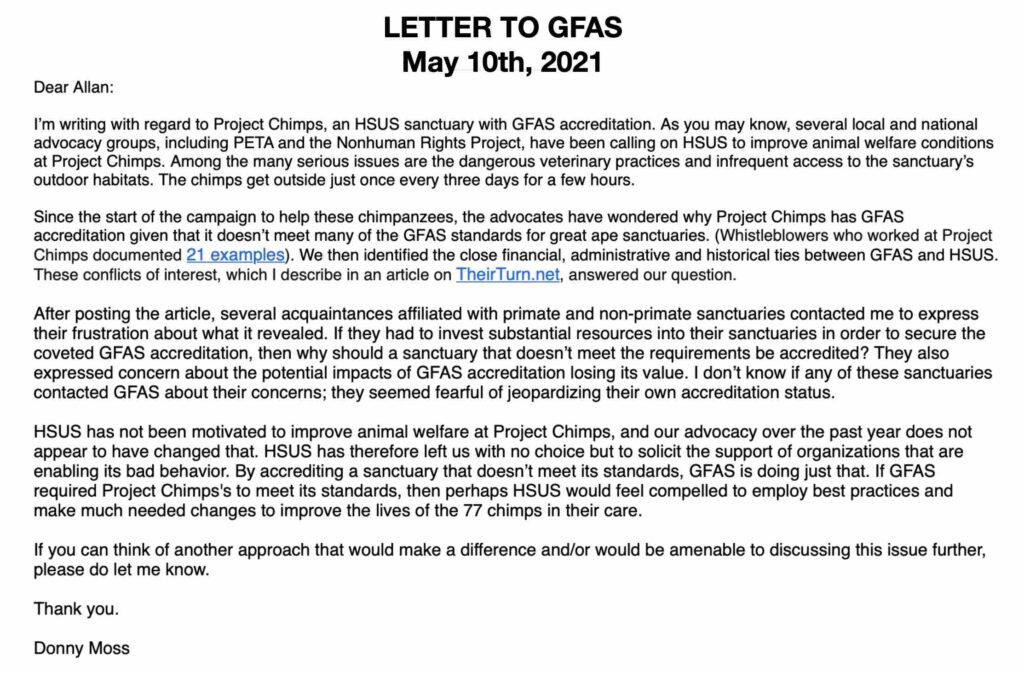
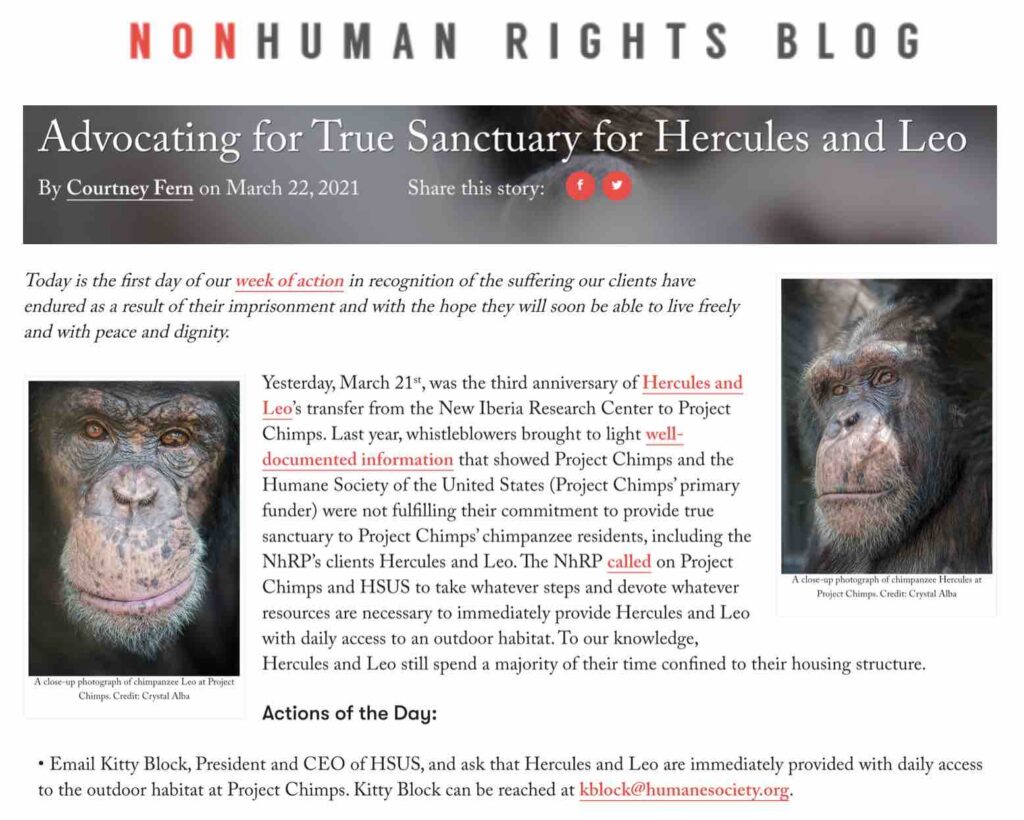
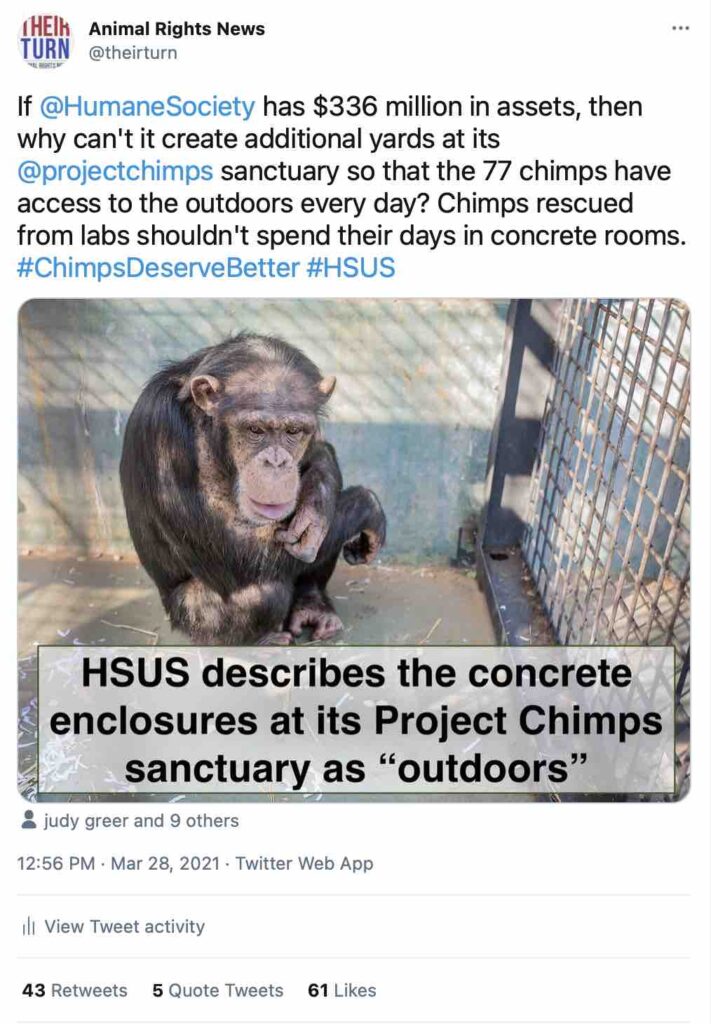
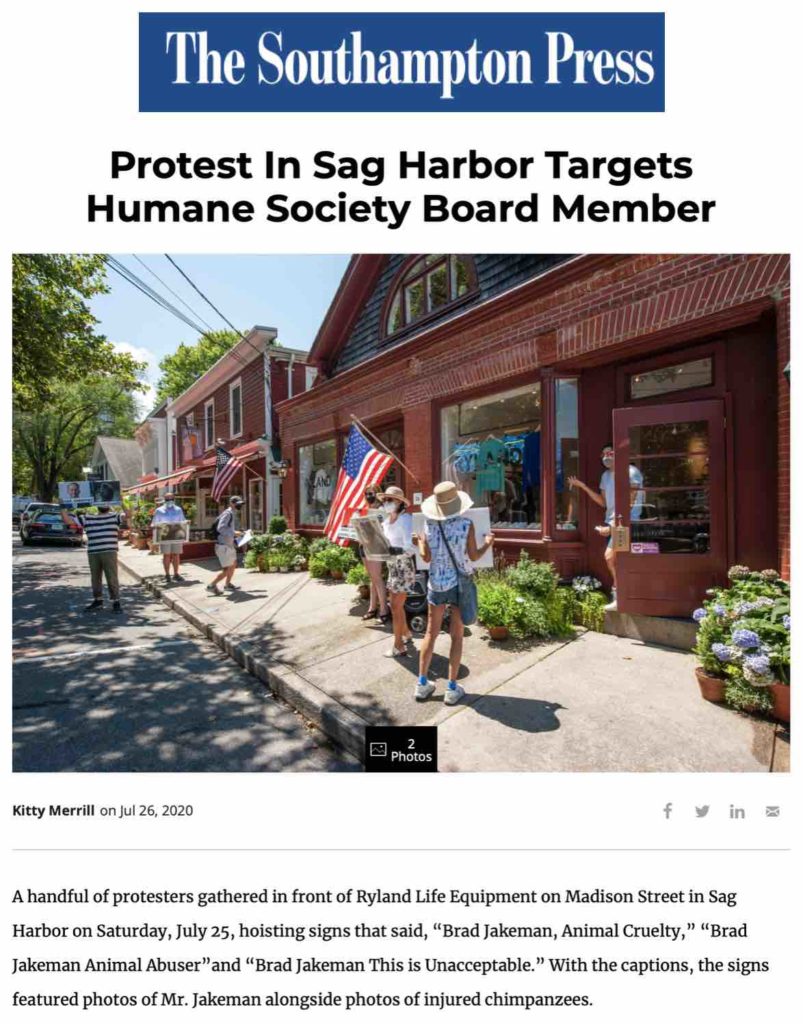
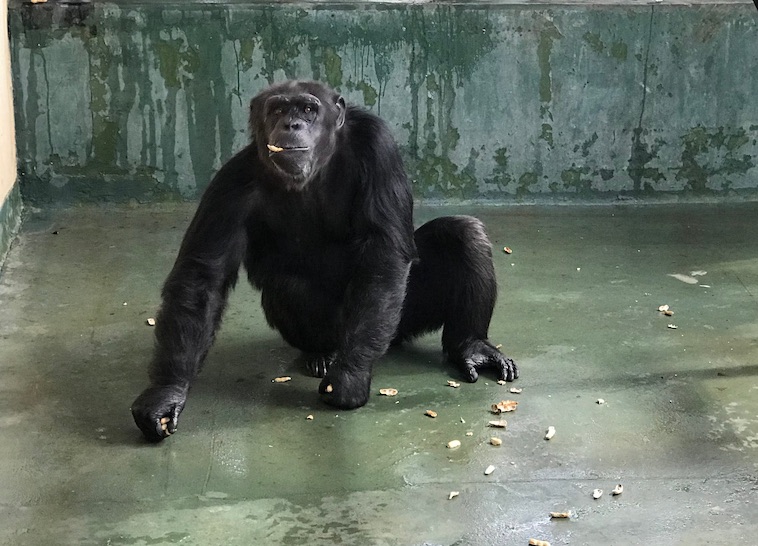
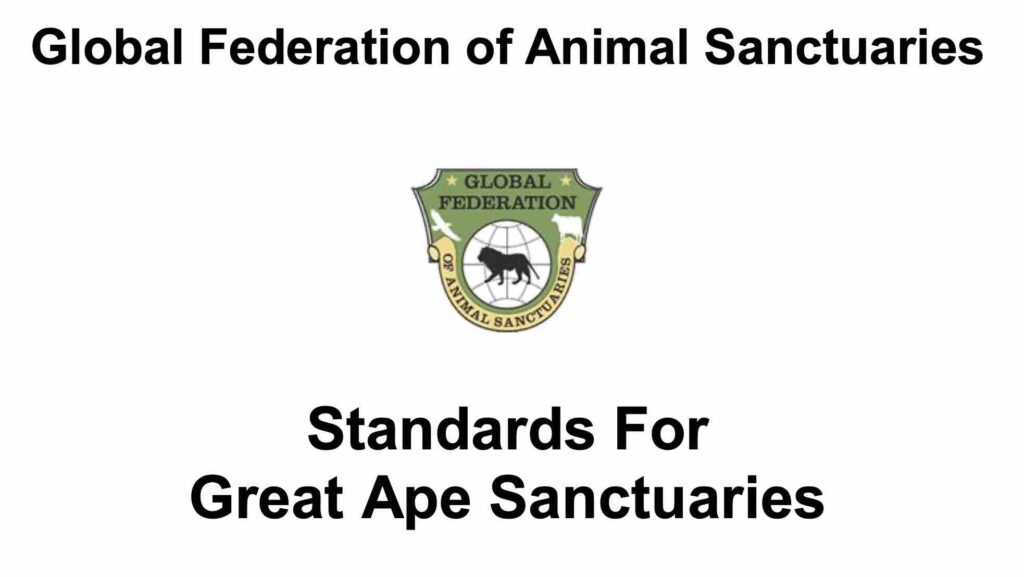
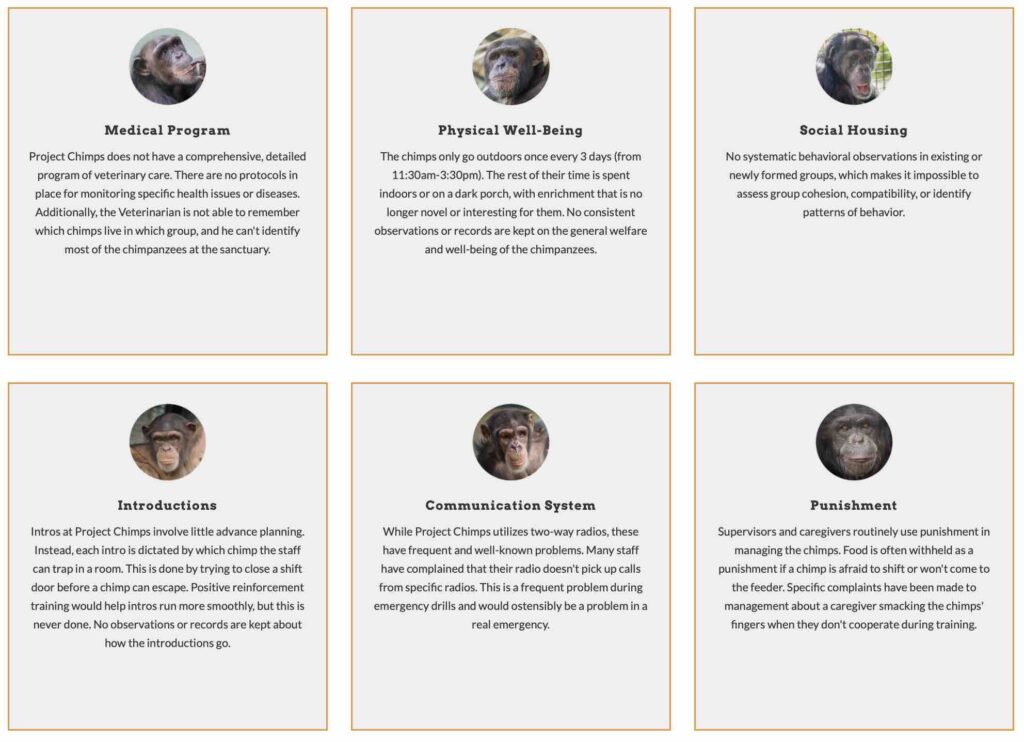
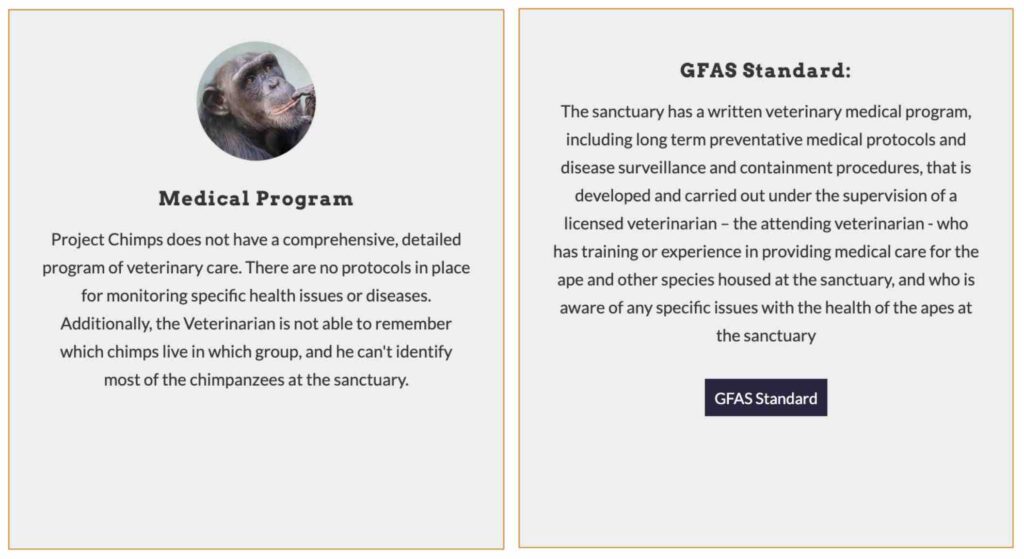
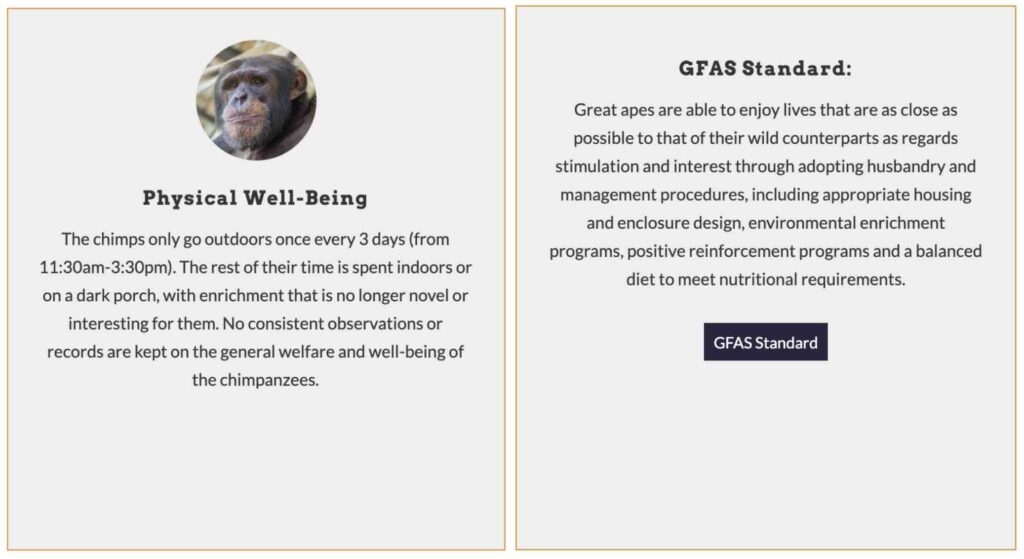
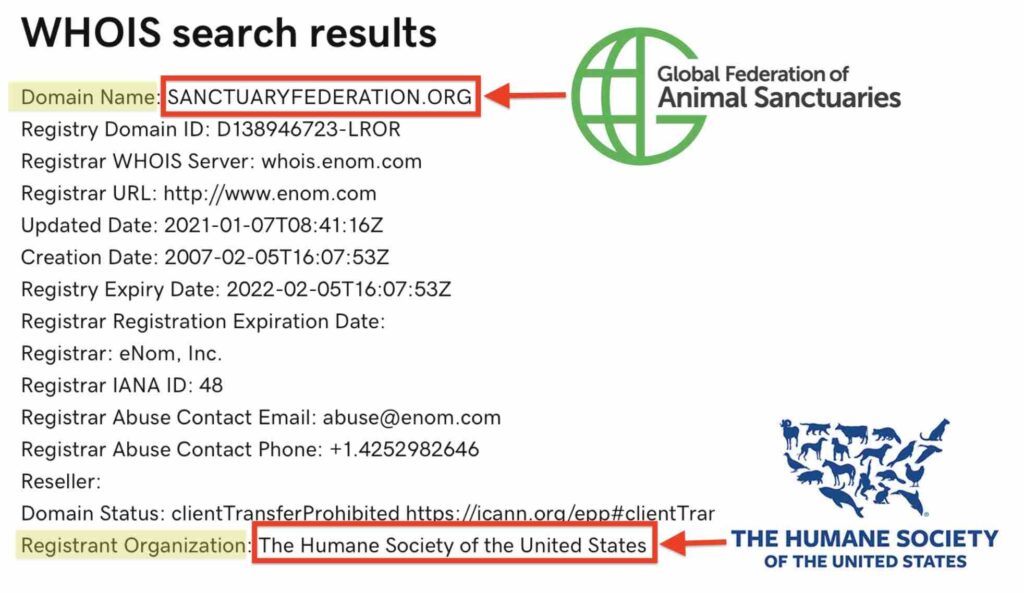
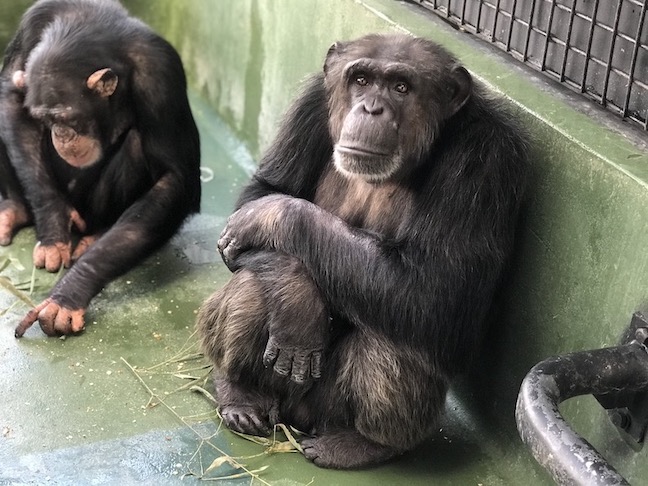

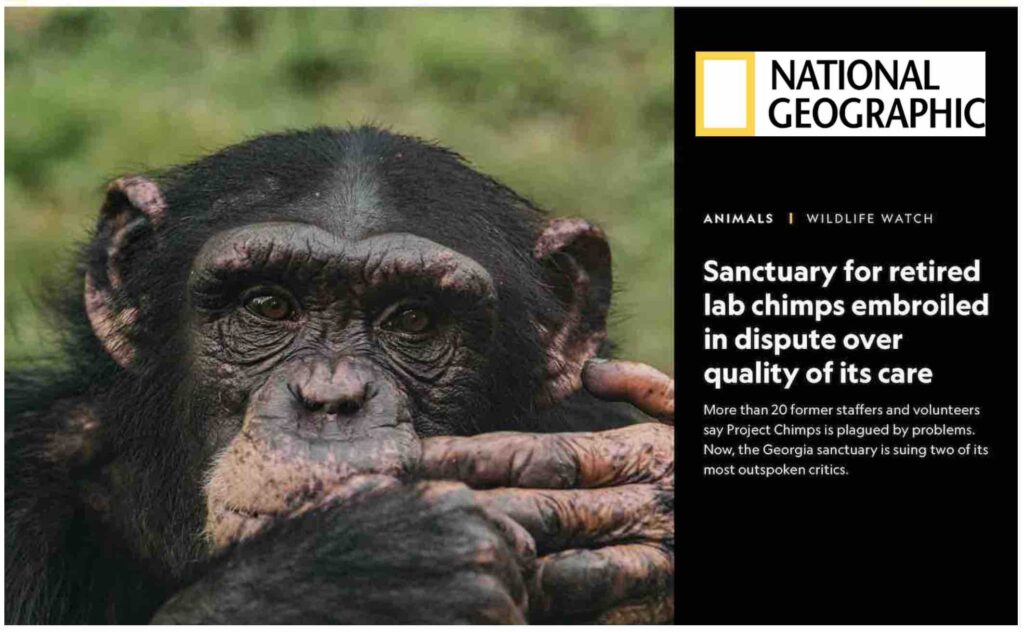
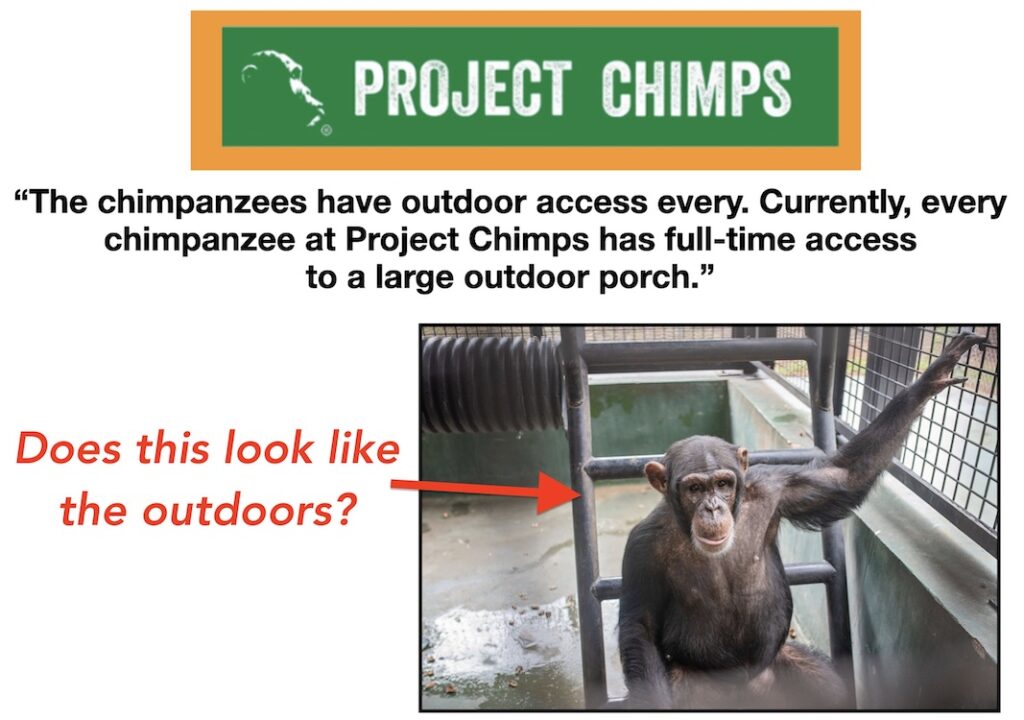
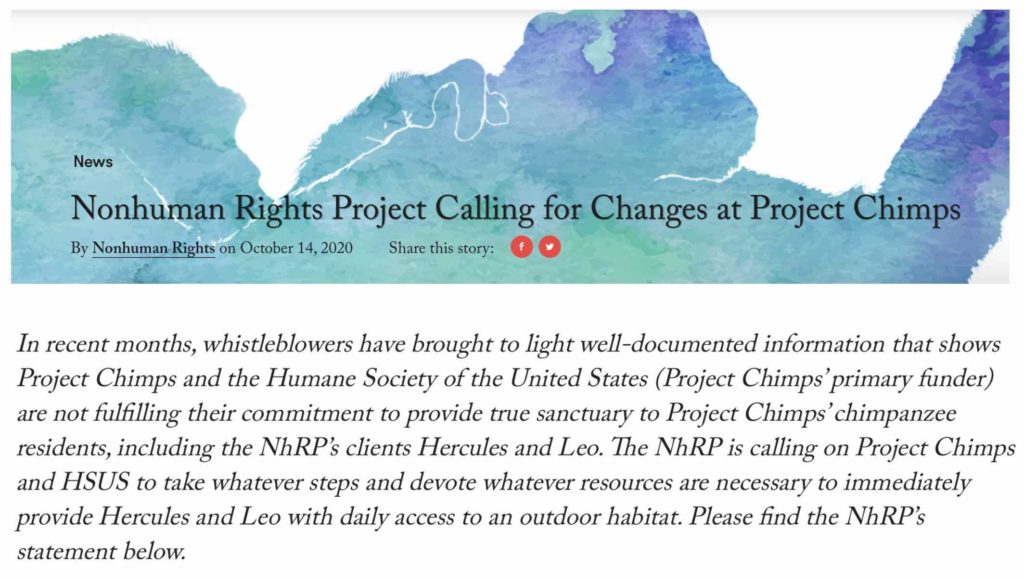

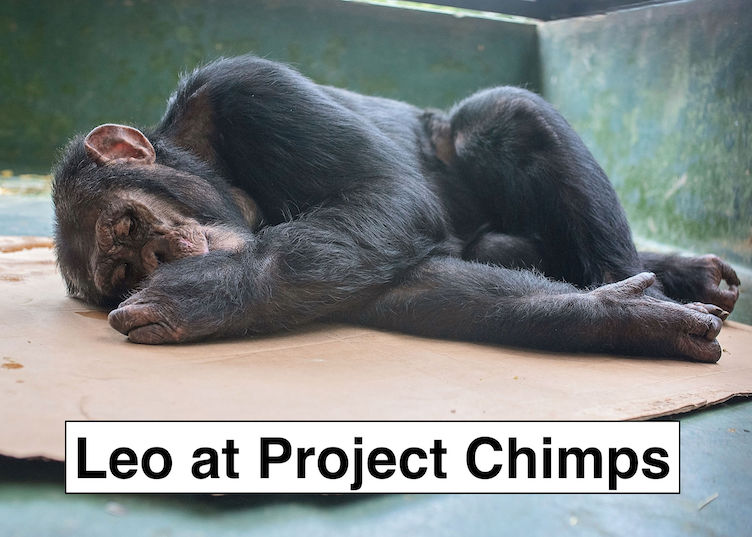
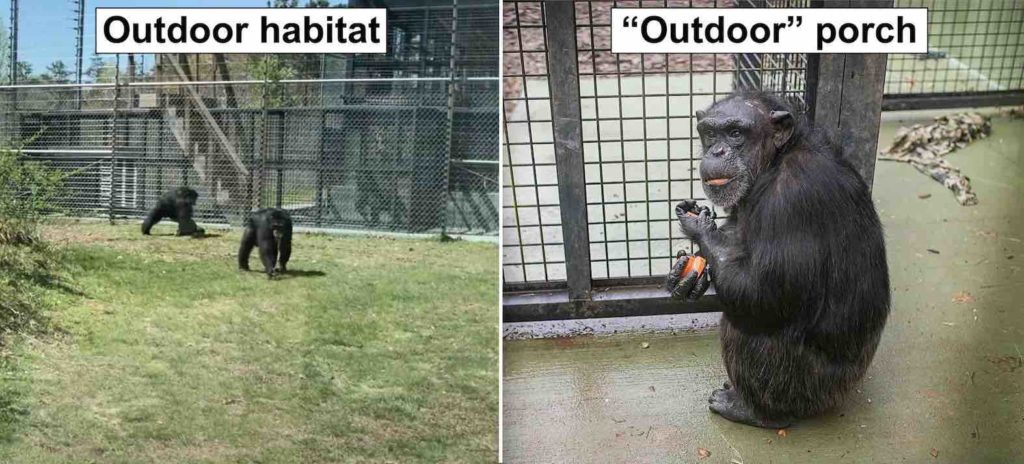
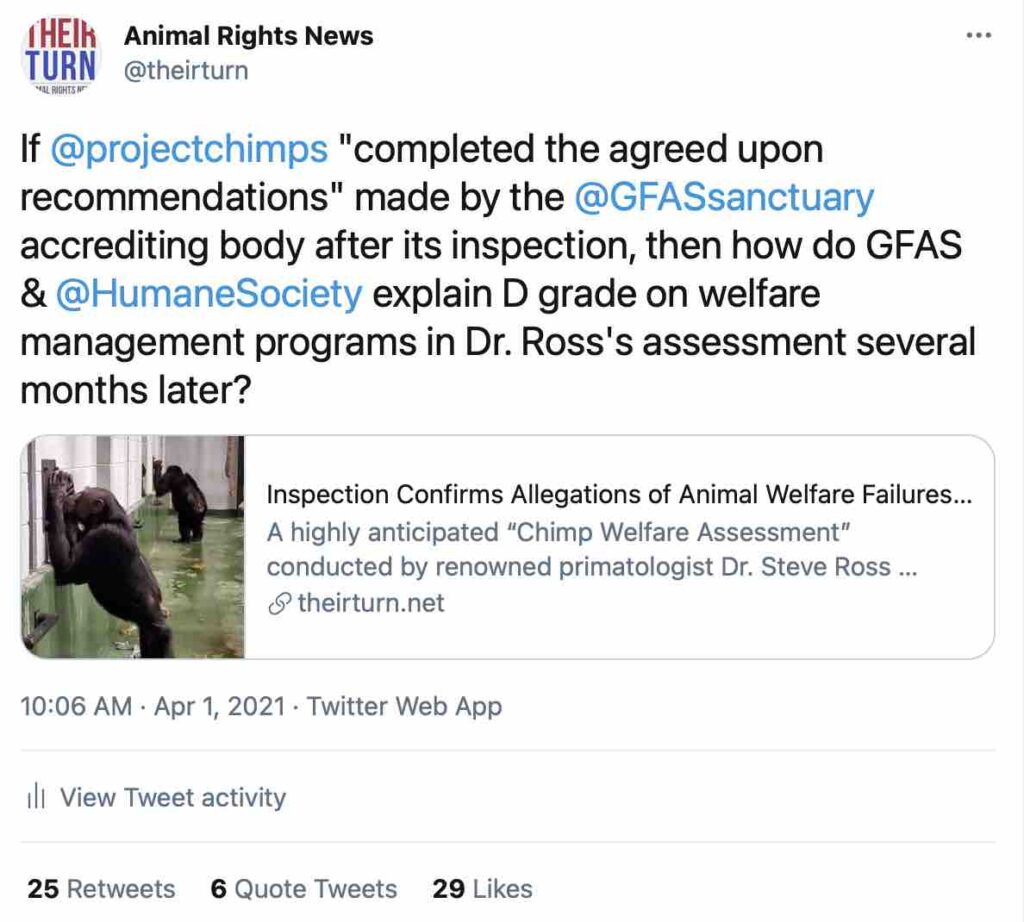
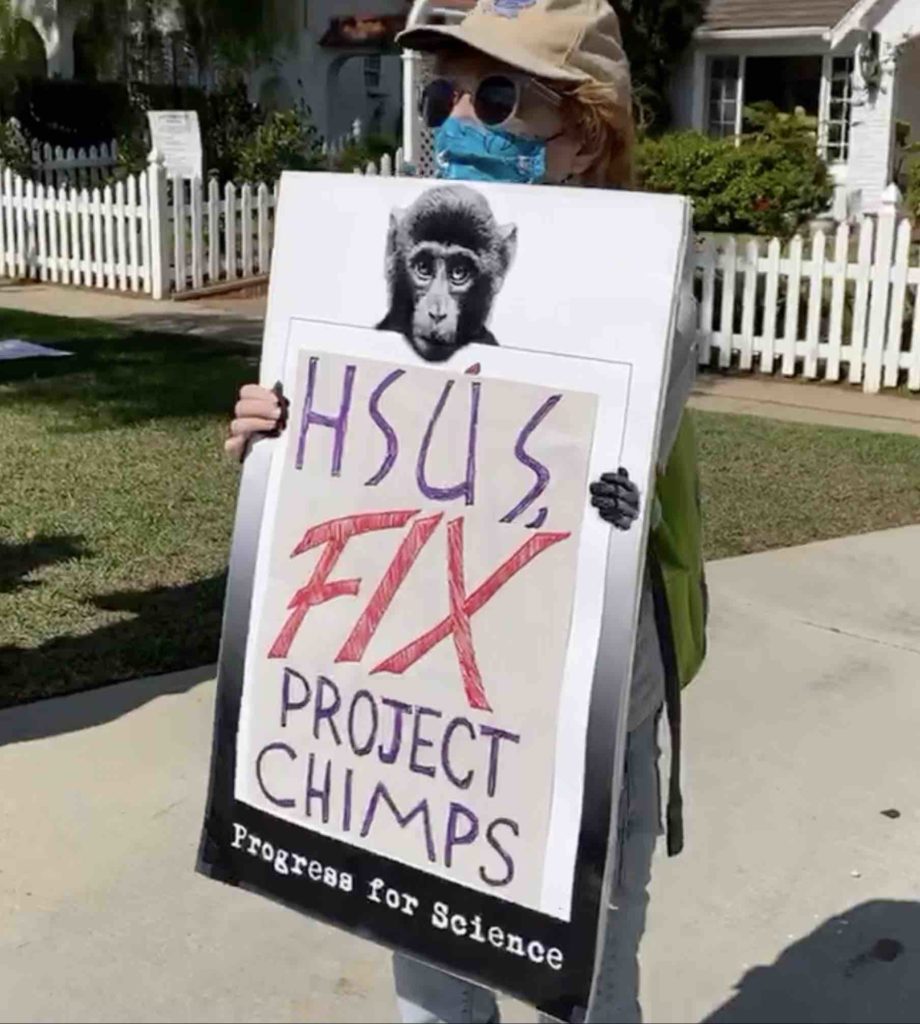

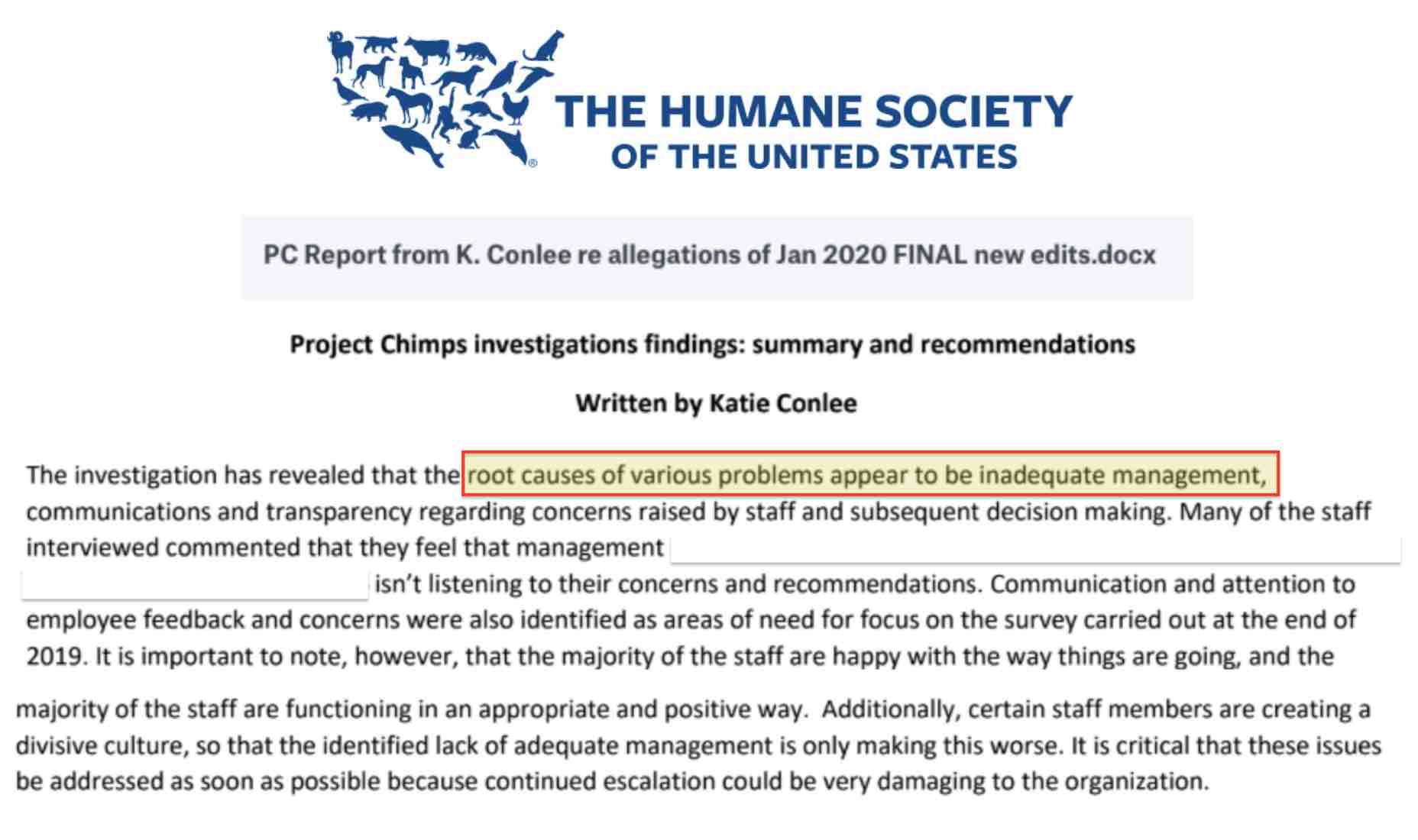
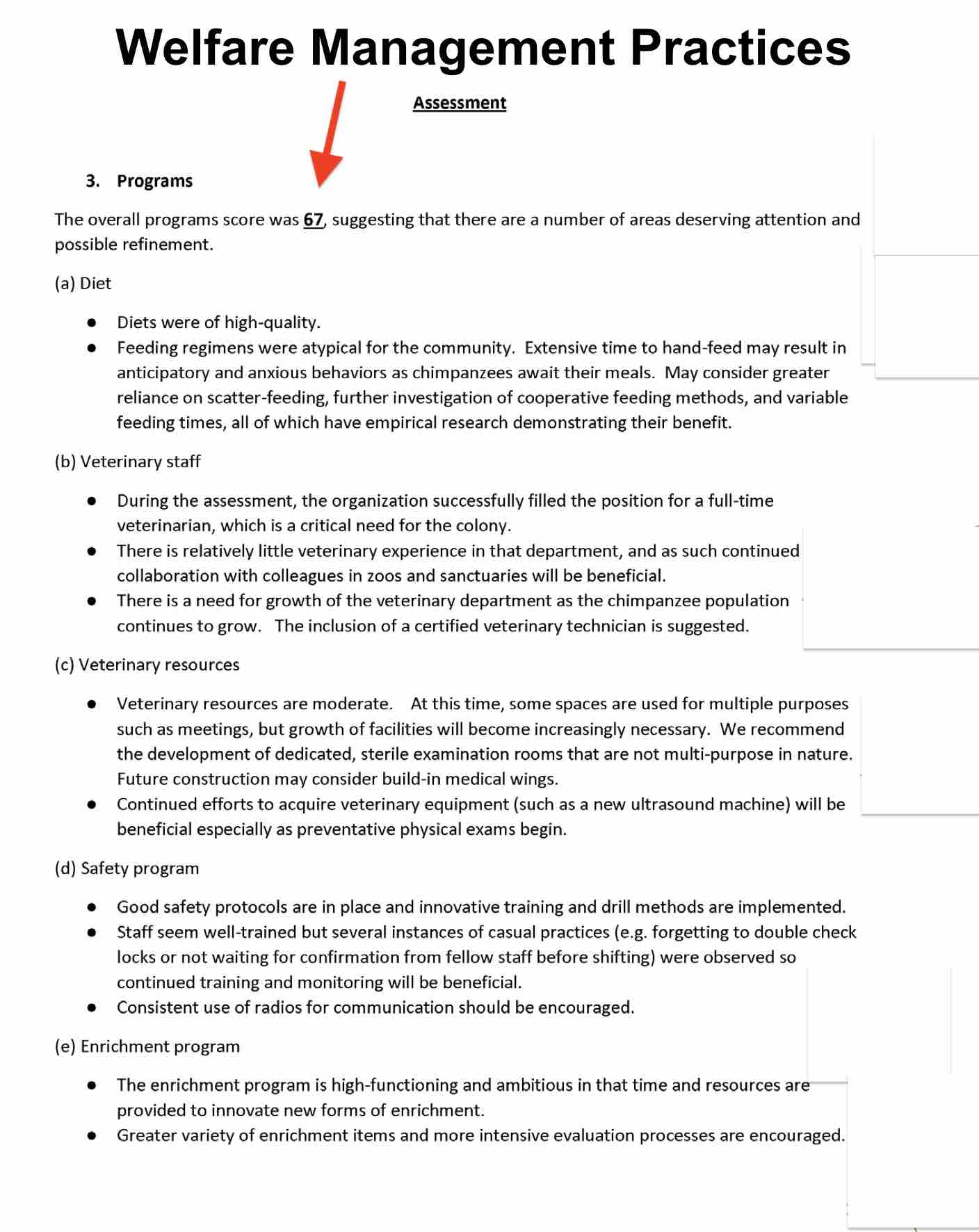
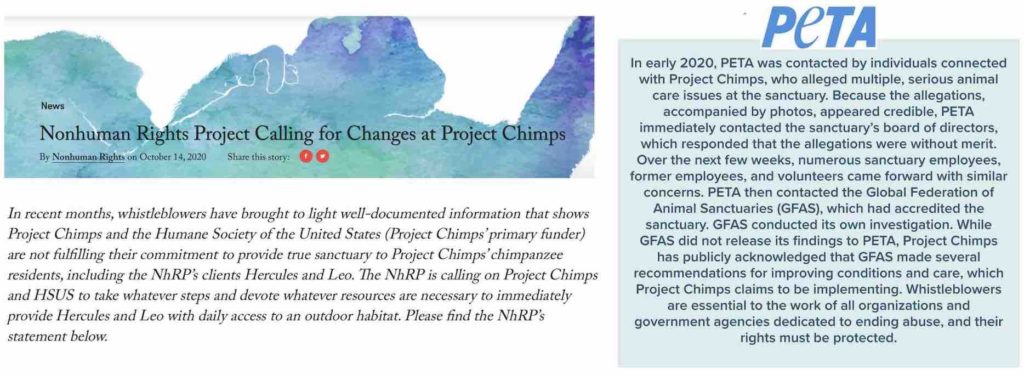
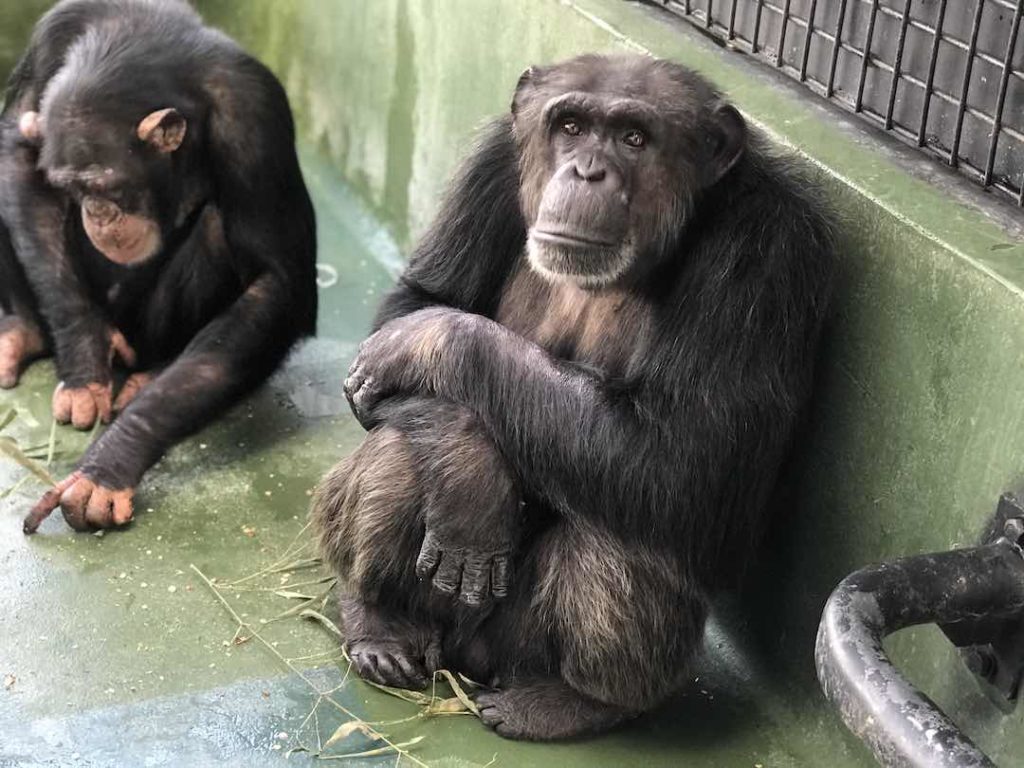
Follow Their Turn